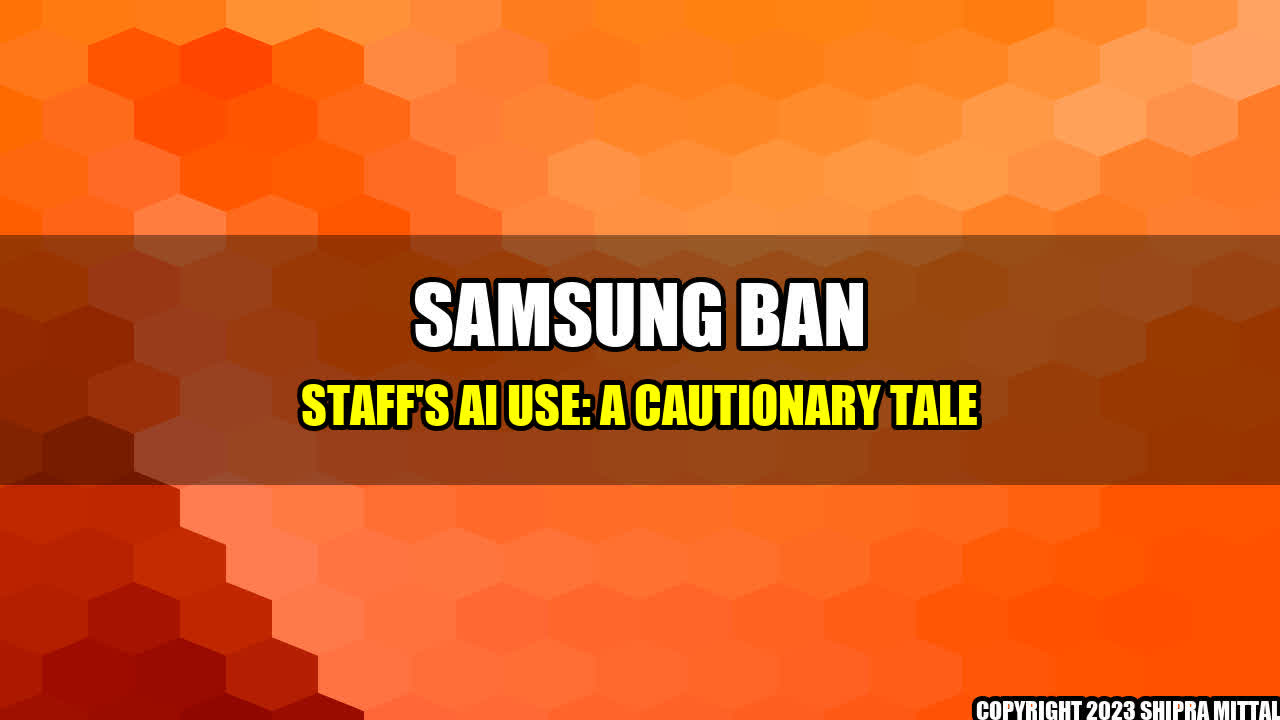Do you have your own personal AI assistant at work? Samsung did, until they decided to ban staff's use of AI devices after a data leak incident on their ChatGPT platform.
According to sources, one of Samsung's AI researchers accidentally downloaded confidential data onto a personal device that had access to the company's ChatGPT platform. As a result, proprietary algorithms and data, along with personal information of users, were leaked.
This isn't the first time a company has dealt with a data breach due to employee actions. In fact, in a study conducted by IBM in 2019, 50% of data breaches were caused by employees and contractors. This highlights the importance of enforcing strict data security policies and providing regular training.
The Importance of Data Security Policies
It's crucial for companies to have a clearly defined set of data security policies and to make sure all employees are aware of them and trained in their implementation. These policies should cover topics such as:
- Access control: Who has access to what data and under what conditions?
- Data classification: What data is considered confidential and how is it treated?
- Encryption and decryption: What data needs to be encrypted and how?
- Incident management: What happens in case of a data breach and who is responsible for handling it?
Real-Life Examples of Data Breaches
Data breaches can have serious consequences for companies, such as financial losses, reputation damage, and legal consequences. Some recent examples include:
- Ubiquiti Networks: The network equipment company suffered a data breach in 2021 that exposed customer data, including names, email addresses, and phone numbers.
- Bayer: The pharmaceutical company suffered a data breach in 2018 that exposed employee data, including names, addresses, and bank account details.
- SolarWinds: The IT monitoring software company suffered a massive data breach in 2020 that affected numerous government agencies and companies.
Conclusion
Companies need to take data security seriously and implement strict policies and procedures to prevent data breaches. Strict policies should be in place, and should be enforced. Additionally, employees should receive regular training on data security practices and understanding of why these policies are in place. Clear communication of policies is important. Regular training; and regular reviews and updates of these policies can ensure the prevention of data breaches and help to protect companies from the consequences of data breaches.

Akash Mittal Tech Article
Share on Twitter Share on LinkedIn